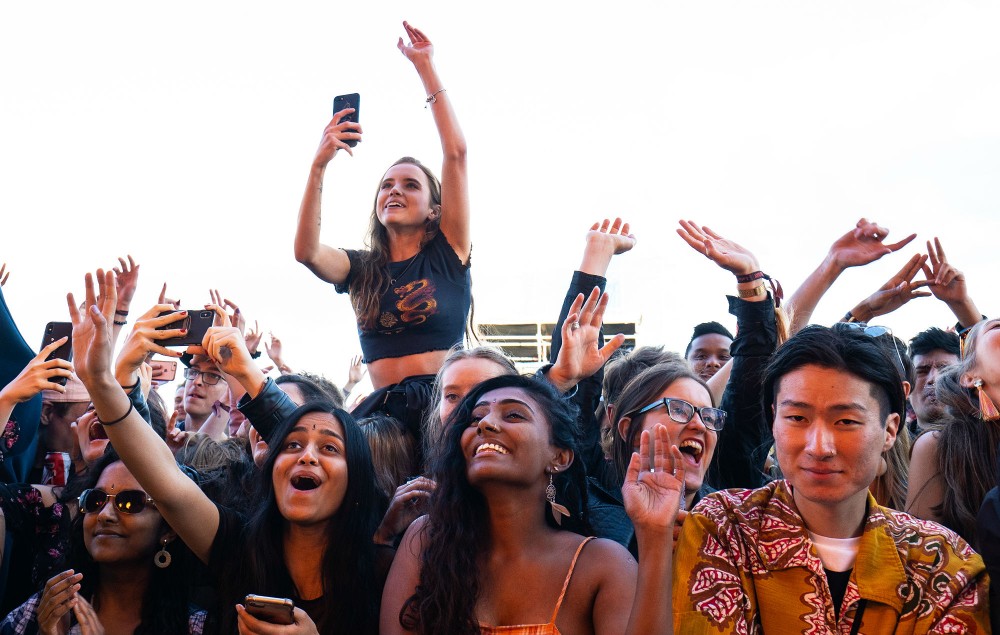Musicians and road crew see rise in depression and anxiety – but help is at hand
Charities have warned that musicians and crew members across the UK are experiencing an increase in anxiety and depression due to the uncertainty brought on by coronavirus, while assuring those in the music industry that help and support is available.
Having repeatedly called for better government help and support to weather the storm of COVID-19 and declaring that they’re facing their “biggest crisis since the 1920s“, many within the live music sector continue to warn of potential bankruptcy and longterm industry damage unless urgent action is taken to mothball the sector until it is safe for life music to return.
With many people self-employed, a lot of crew and musicians fear they will not benefit from the Chancellor’s newly-announced plans to pay two-thirds of the wages of businesses forced to remain closed due to the virus, nor the £1.57billion Cultural Recovery Fund which will be awarded to arts institutions and venues.
For World Mental Health Day, NME spoke to a number of organisations about the emotional and psychological impact of gigs being unable to go ahead on the crew members and artists who make them possible.
Eric Mtungwazi is Managing Director of the charity Music Support, who offer support for “individuals in any area of the UK music industry suffering from mental, emotional and behavioural health disorders”. Over the last six months since the coronavirus lockdown, over 1,000 people have accessed their services and their free provision of the Thrive mental health support app.
“The numbers that we’ve seen in such a short time show that there is a real and concerning, emerging pattern of people reporting anxiety and depression,” Mtungwazi told NME. “Around 50 per cent of people are coming to us with anxiety issues and 35 per cent are dealing with depression at a moderate to severe level. There have been a number of people who have talked about suicide in recent months too, that’s at the most severe and acute end of the scale. We’re also getting increasing calls relating to alcohol and/or substance abuse.
“There are a significant number of cases where people are dealing with these things concurrently. It manifests itself in different ways.”

As for the source of the anxiety, Mtungwazi said that much of the stress has arisen from the lack of work, as well as “a great deal of grief and helplessness in not knowing when the end will be in sight” and “the loss of identity” in lifestyles being uprooted. However, he praised the “diligence and community” of the live music world to support one another and find solutions until it is safe for live music to take place again at full capacity.
“There’s only so far that people can see ahead,” he said. “If you can’t manage the month then manage the week, if you can’t manage the week then manage the day, if you can’t manage the day then manage the hour and so on. There’s a modicum of wisdom in that, whoever you are. There will be a recovery for the industry too, but it requires some thoughtfulness on how we all look after ourselves.”
He added: “Ask for help and reach out. The sooner you do it, the better. Even if it’s a speculative call to a helpline, we want to listen and we’ll do that confidentially. Sometimes it’s your friends, family and colleagues who will notice things before you do. If you notice that someone else is going through something, then encourage them to seek help. Sometimes they might not see how much they’re struggling. If you’re that person who’s struggling then pick up the phone or speak to a friend.
“There are amazing charities and organisations who are trying to help. What it takes to make that happen is people pulling together. Whether you’re in a comfortable position and can donate or if you can just spread the word on social media, they really need your help.”

Liam Hennessy, Head Of Health And Welfare at the charity Help Musicians, told NME that one of their helplines had seen a 25 per cent increase in people contacting them concerned about their mental health. Around 80 per cent of musicians and industry workers recently surveyed said that the current situation was having a significant negative impact on their wellbeing, especially with regards to financial problems.
“It’s been an incredibly difficult time for musicians over the last six months,” Hennessy told NME. “Many musicians are freelance, so with the closure of live events, income streams dried up almost completely and almost overnight. We’ve never been in a position like this before.
“We’re finding that there is an increase in the anxiety about what the future might look like. There’s still such a lot of uncertainty. We’re really in the midst of it at the moment.”
Speaking of the main reoccurring issues, Hennessy said: “There’s a really strong link between finances, debt and mental health. Anxiety and depression continue to be really prevalent within the music industry, but those are the key things we’ve been seeing lately.”
As well as helping over 17,000 musicians access essential money through their hardship fund, the charity also run a 24/7 “listening ear service” called Music Minds Matter for anyone in the music industry who might be “feeling isolated or anxious, needs someone to talk to or wants to explore the option of counselling.” Not only that, but they’ve also been working to offer advice and funding to keep people “actively creative” and stop them from leaving the music industry.
“There was a recent survey by the Musician’s Union which showed that up to a third of professional musicians are considering leaving their career,” he continued. “For us, that’s devastating to read because music brings joy to so many. Many would have relied upon music throughout lockdown. Many will rely on music to get us through this and boost their own mental health. We really want to celebrate the value of music. Musicians have been there for us in our hardest times, and that’s never been more important than right now.
“Particularly on World Mental Health Day, music plays such a key role in our wellbeing and in our own moods. We want to encourage musicians wherever we can to stick in the industry and reach out for support when they need it.”

Andy Lenthall is the general manager of the Production Services Association and also founder of the charity Stage Hand, who provide financial support to live production workers in times of need. Lenthall told NME that the shutdown of live gigs and events due to COVID has caused great turmoil among his members.
“There are people who are worried, and we can help them with small grants towards keeping a roof over their head and putting food on the table,” he said, “that will relieve some stress but there’s still plenty more. There are others who are doing OK financially, but feeling mentally drained.”
Many crew workers spend much of their lives touring, and some are struggling to adjust now that they are home for a prolonged period of time. “If your life is spent being on the road with your touring family, then that’s your home and you won’t be as connected with your neighbourhood or community,” Lenthall explained.
“Some people are literally not used to living at home because they haven’t done it in decades. So you’ve got the longest period you’ve ever spent living in the same space and adjusting to that, you’ve got the grieving process of your industry being closed down and you’ve got the anxiety of not knowing when you’ll next be working. Some people won’t have felt that uncertainty for years.”
Lenthall also hit out at the emotional impact of Chancellor Rishi Sunak’s Job Support Scheme’s provisions for the self-employed and government stance that only “viable” jobs could be protected.
“Everyone who works in live music absolutely loves it,” said Lenthall. “To see their industry being ignored, downgraded and called ‘unviable’ when we are actually enviable is devastating. Our people have to create a look, a sound, a feel or a vibe to go with the performance. Creativity runs through the performer to the crew and everyone involved and there’s a lot of pride involved in that. To have that devalued and taken away is really challenging.
“There will be parallels to other sectors, without a doubt, but those other sectors might actually be coming back soon or having hope of coming back – they’re not sectors that have basically been outlawed. The accumulative pressures are unique to this industry.”
To meet the challenge, StageHand provide a resource for help and support for matters of financial help or to talk about experiencing depression and anxiety, as well as providing music industry workers with mental health first aid training.
“This is a whole new conversation with a whole new set of circumstances,” Lenthall said. “Proactivity has been our watchword.”
For help and advice on mental health:
- Help Musicians UK – Around the clock mental health support and advice for musicians (CALL MUSIC MINDS MATTER ON: 0808 802 8008)
- Music Support Org – Help and support for musicians struggling with alcoholism, addiction, or mental health issues (CALL: 0800 030 6789)
- ‘Am I depressed?‘ – Help and advice on mental health and what to do next
- YOUNG MINDS – The voice for young people’s health and wellbeing
- CALM – The Campaign Against Living Miserably for young men
- Time To Change – Let’s end mental health discrimination
- The Samaritans – Confidential support 24 hours a day
